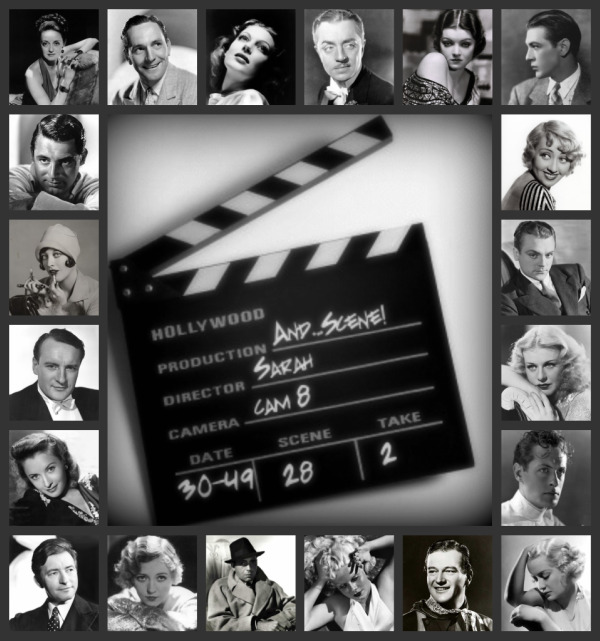After a harrowing night spent trying to convince Powell the money is in the basement, John and Pearl manage to escape and float down-river in a small boat. Powell follows on land, practically a step behind. However, bible-thumper and do-gooder Rachel Cooper (Lillian Gish) captures them first. Despite her good intentions, John is wary of the very religious Cooper and does not warm up to her immediately. Suspecting that John is hiding something horrible in his past, Cooper’s suspicions are confirmed when Powell shows up to her farm wanting to claim the children. Unlike all the other adults, Cooper listens and believes John when he says Powell is no father of his. She demands Powell get off her land thus sparking an all night vigil with the very delicate Gish sitting in her rocking chair Mother Whistler style, shotgun at the ready. The game of cat and mouse ends when Cooper shoots Powell and he runs off to her barn howling like a wounded animal. The police arrive shortly after and collect their prisoner. The scene is so familiar to John who saw his real father arrested, that he runs to Powell begging the police not to take him away and giving up the money. A day in court reveals the irony of the townspeople who come out of the woodwork to lynch Powell for his evil doings.
This was the first and only film Charles Laughton’s ever directed and though it was a critical failure upon release, I certainly wouldn’t have minded if he had directed a few more. Some could blame Laughton’s extremely successful acting career up to this point overshadowing what is basically a horror film with elements of humor and dreamy expressionism. Or some could blame not understanding what is essentially the evilest character Mitchum ever played, having built his career on being a care-free outsider not easily angered. Whatever the reason, Night of the Hunter blends horror, humor, and expressionism together successfully and has obviously become a cult classic. Whether you have seen the movie or not, the image of Powell’s tattooed knuckles are legendary. “Ah, little lad, you're staring at my fingers. Would you like me to tell you the little story of right-hand/left-hand? The story of good and evil? H-A-T-E! It was with this left hand that old brother Cain struck the blow that laid his brother low. L-O-V-E! You see these fingers, dear hearts? These fingers has veins that run straight to the soul of man. The right hand, friends, the hand of love. Now watch, and I'll show you the story of life. Those fingers, dear hearts, is always a-warring and a-tugging, one agin t'other. Now watch 'em! Old brother left hand, left hand he's a fighting, and it looks like love's a goner. But wait a minute! Hot dog, love's a winning! Yessirree! It's love that's won, and old left hand hate is down for the count!”
Throughout the film Laughton uses this dream-like expressionism, mostly with the use of the river the small town sits next to. Directly after we see Powell pounce on Willa, knife in hand, the camera cuts to John being awakened by the loud noise of a car. What follows is a much calmer scene, seaweed flowing breezily under water and as the camera pans over the seaweed begins to mingle with Willa’s hair as she sits upright and anchored to the car Powell has driven into the river after murdering her. Even now, that scene resonates it’s so powerful, so ahead of its time. What may have lost the audience were the scenes after John and Pearl escape down river. Using obvious unrealistic scenery mixed in with nature, the children’s oddessey is the most dreamlike sequences in the film and for me, the very best sequences. It’s quite appropriate for the mood of John and Pearl who are weary from days of trying to mentally outmaneuver Powell and physically running from him. The sequence is interrupted occasionally by Powell’s pursuit on land. Jarring against the serenity of the river, it reminds the audience what the children already know, they still need to be cautious. Powell will not give up easily.
Another aspect I like about this film is that, unlike today with psychotic thrillers, we do not get Powell’s background, the reason why he’s so twisted. Instead of spending part of the film figuring out why he uses his religion to do evil, Night of the Hunter proves that one can be thoroughly entertained by a whole lot of unexplained crazy.
A very compelling and frightening film, Night of the Hunter is a definite must see!
Did anybody else think for a moment that Harry Powell was Rachel Cooper’s son, the one she lost because of her devotion to religion?
Tonight on TCM!
Good Neighbor Sam (1964) A man poses as husband to his wife's best friend for one day that could turn into a lifetime. Dir: David Swift Cast: Jack Lemmon, Romy Schneider, Dorothy Provine.


No comments:
Post a Comment